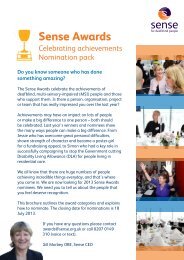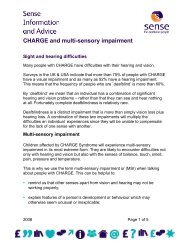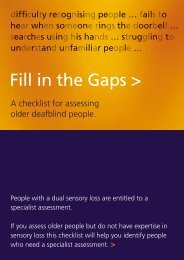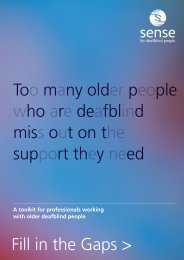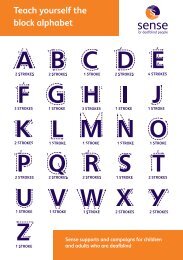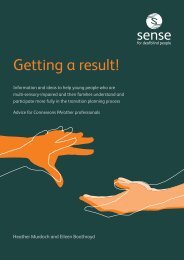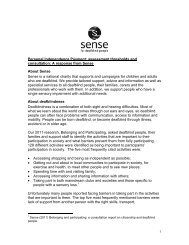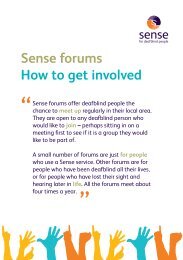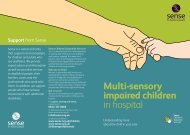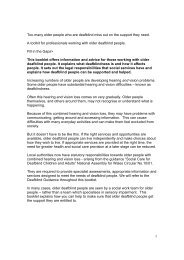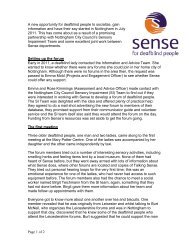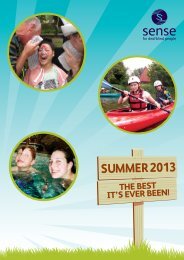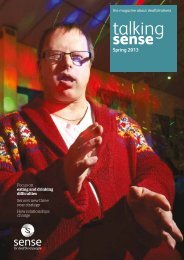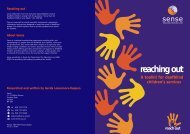MSI Unit Curriculum - Sense
MSI Unit Curriculum - Sense
MSI Unit Curriculum - Sense
You also want an ePaper? Increase the reach of your titles
YUMPU automatically turns print PDFs into web optimized ePapers that Google loves.
<strong>MSI</strong> <strong>Unit</strong> <strong>Curriculum</strong>: Phase 3For many pupils, travel to a teaching room or other destination is an activity in itsown right, and often a demanding one. Pupils may need time to relax on arrival,before meeting the further demands posed by the teaching activity.Pupils are given choices within mobility sessions, for example choosing theirdestination or choosing an activity which requires travel, such as returning autensil to the food tech. room.Pupils are given opportunities to explore and map new environments withsupport. These may be within the school setting or on trips – if the latter, tripsmust be repeated several times at least to enable pupils to learn to access andintegrate new information.Mobility sessions incorporate outdoor routes with a variety of surfaces andchallenges. Pupils may need considerable support initially, especially in weatherconditions which affect the sensory information they receive (eg: wind, rain).Pupils begin to learn formal mobility techniques if appropriate (for example,using a hoople). These must be presented in such a way that pupils seeimmediate value in their use.Ownership of learningPupils begin to differentiate between actions they can completeindependently and those with which they need help.They work co-operatively or reactively with adults on familiar activities.They rarely generate solutions to new problems but may do so if veryhighly motivated. They may be prompt-dependent and need considerableencouragement to use their skills independently.Pupils are encouraged and expected to use their skills to the full in activitieswith strong intrinsic motivation (for example, snack time, dedicated ICTsessions). Staff model and support pupils in asking for help when they need it,and indicating exactly what help they want. Self-care routines are extended toinclude pupils indicating when they need help with specific activities.Staff share the control of activities with pupils whenever possible – for example,by taking turns to help each other complete a task.Learning activities encourage imitation by pupils of actions modelled by staff.Pupils with sufficient residual vision are encouraged to copy visual models;those who need physical modelling are encouraged independently to repeat theactions used.71



